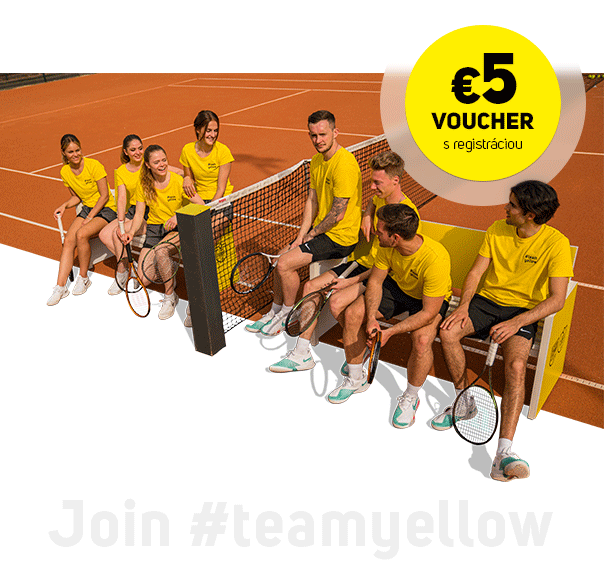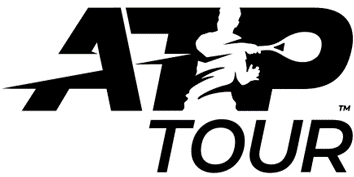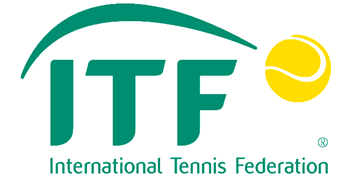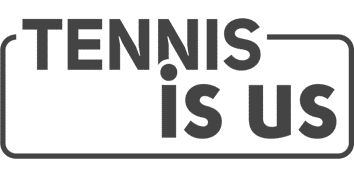Easter deals Save up to 60% with the code “SPRING15”²! Get it now.
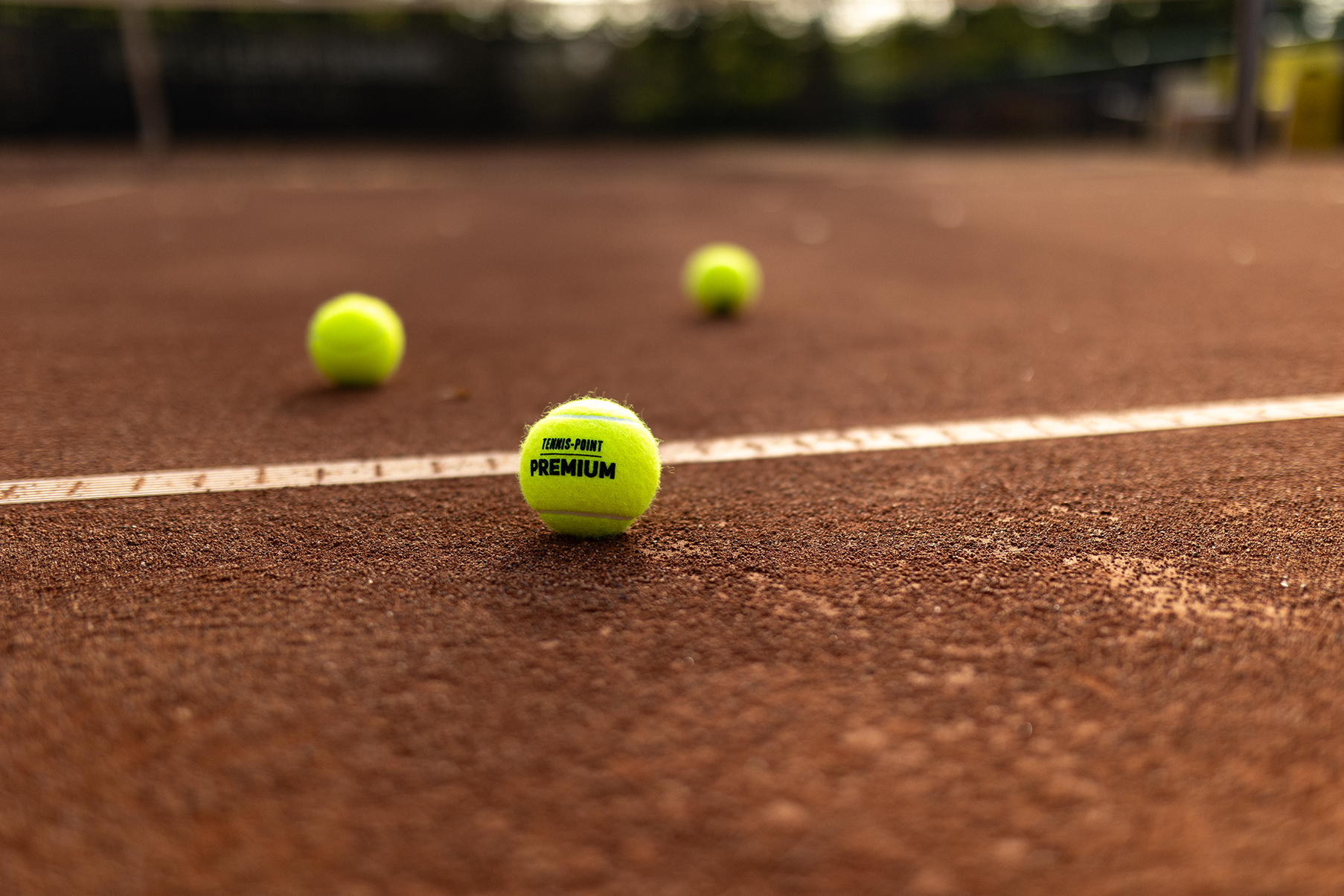
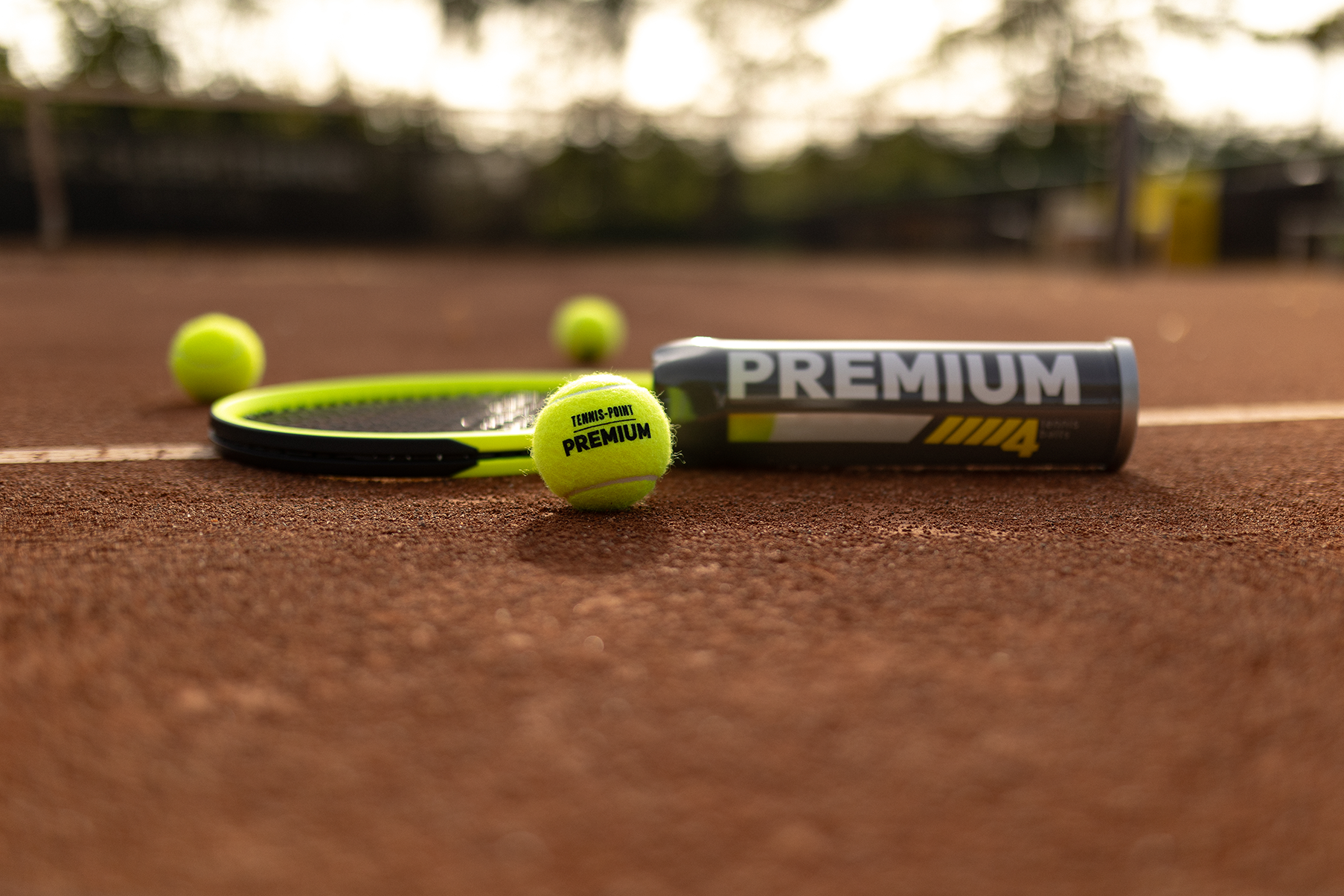
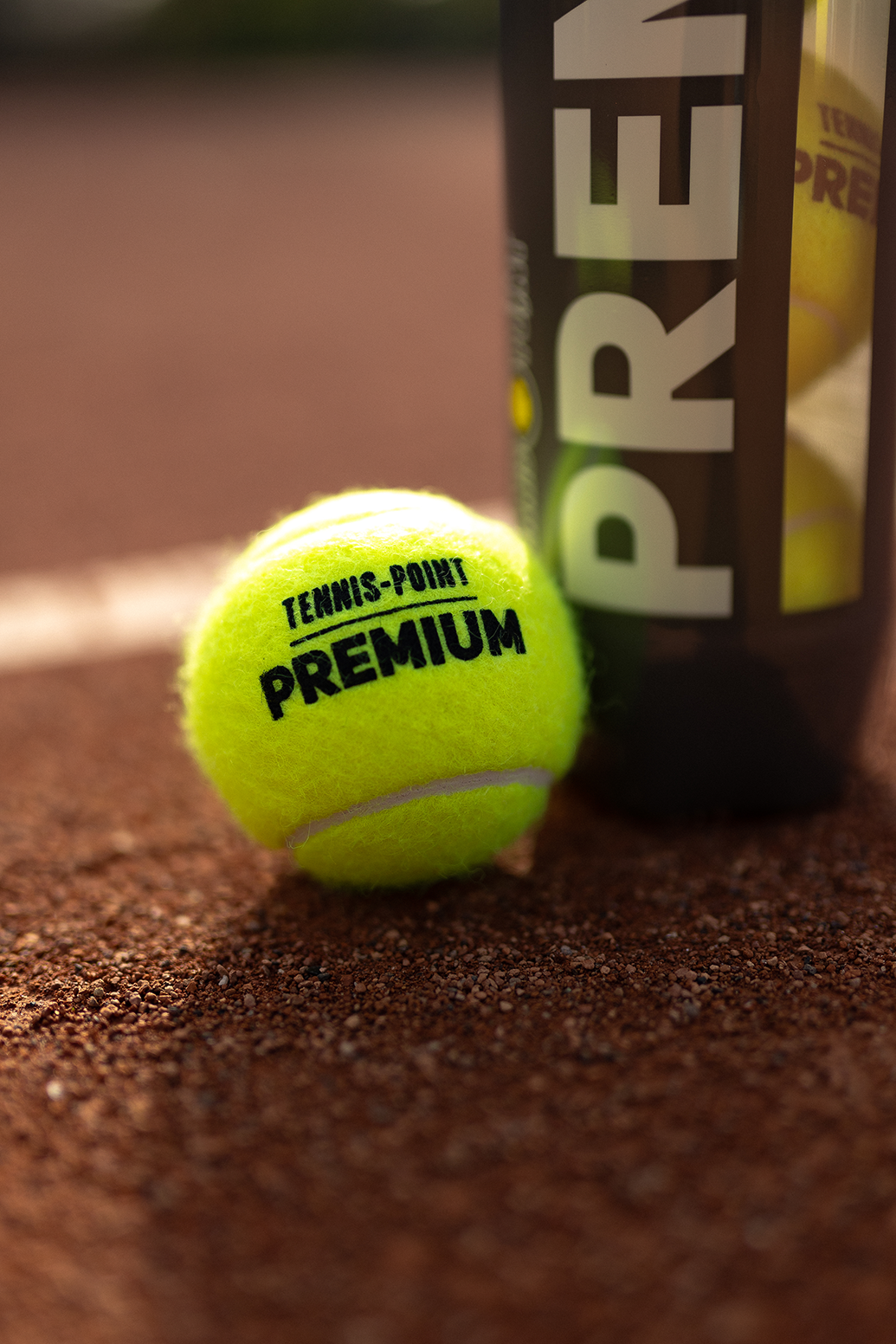
How to choose the right tennis ball
Here you can find out everything you need to know about tennis balls to make your purchase decision easier: types, differences, materials, manufacture and more.
The composition of tennis balls
Different materials are used for tennis balls, but they generally consist of three components:
- Felt sheathing
- Rubber core
- Air or gas filling in the core
The felt
The felt is important for the performance of the tennis ball. The material and its processing are key factors that differentiate premium balls from cheaper variants. In most tennis balls, the felt consists of a mixture of natural wool and synthetic nylon fibers. In premium balls, the proportion of natural wool fibers is particularly high and the felt is almost always woven, while in the cheaper balls in the championship category it has a higher nylon content and is produced by needle punching. Below the championship balls and in non-pressurized tennis balls, the felt consists largely or entirely of nylon fibres and a needle-punched nonwoven.
The core
The core of tennis balls consists of either natural rubber or synthetically produced rubber. The rubber is formed into hemispheres which, after hardening and sanding, are bonded together with glue to form a ball. In the case of inner pressure balls, air or gas is filled into the core during this production step. The core of premium balls is almost always made of natural rubber, which is obtained from rubber trees, whereas the core of other tennis balls tends to be made of synthetic rubber.
The filling: air or gas
In unpressurized tennis balls, the two halves of the core are glued together without any additional supply of air or gas. Internal pressure balls, on the other hand, derive their bounce from an extra supply of air or a gas mixture, which varies depending on the manufacturer. There is no set standard for the internal pressure, but it is usually in the range of 1.6 to 2.2 bar.
The felt is important for the performance of the tennis ball. The material and its processing are key factors that differentiate premium balls from cheaper variants. In most tennis balls, the felt consists of a mixture of natural wool and synthetic nylon fibers. In premium balls, the proportion of natural wool fibers is particularly high and the felt is almost always woven, while in the cheaper balls in the championship category it has a higher nylon content and is produced by needle punching. Below the championship balls and in non-pressurized tennis balls, the felt consists largely or entirely of nylon fibres and a needle-punched nonwoven.
The core
The core of tennis balls consists of either natural rubber or synthetically produced rubber. The rubber is formed into hemispheres which, after hardening and sanding, are bonded together with glue to form a ball. In the case of inner pressure balls, air or gas is filled into the core during this production step. The core of premium balls is almost always made of natural rubber, which is obtained from rubber trees, whereas the core of other tennis balls tends to be made of synthetic rubber.
The filling: air or gas
In unpressurized tennis balls, the two halves of the core are glued together without any additional supply of air or gas. Internal pressure balls, on the other hand, derive their bounce from an extra supply of air or a gas mixture, which varies depending on the manufacturer. There is no set standard for the internal pressure, but it is usually in the range of 1.6 to 2.2 bar.
The different categories of tennis balls
You may have noticed in your search that there are many different categories of tennis balls. But how do they differ and which type of tennis ball is suitable for whom? We will answer these questions below:
Internal pressure balls
ITF-Approved
Play & Stay
Coach's balls
Tournament balls
Pressureless tennis balls
Pressureless balls last longer than internal pressure balls, which makes them particularly popular for use in training or in ball machines. Due to their longer durability, these balls need to be replaced much less frequently than other tennis balls, which is an important reason for their popularity with tennis coaches. Apart from the cost advantage, pressureless tennis balls also have certain playing characteristics that make them ideal for training. With pressureless balls, the rubber cover alone is responsible for the bounce. This is why it is thicker than that of pressure balls, which not only makes pressureless tennis balls heavier, but also slower and they do not bounce as high. These properties in particular make it easier for beginners and inexperienced players to control the ball, which is why pressureless balls are used especially in training. But even if you play a lot, pressureless balls are a good choice to save costs.
To the unpressurized balls
In contrast to unpressurized tennis balls, internal pressure balls are filled with air or a gas mixture during production, from which they derive their bounce. This means that less material has to be used for the rubber cover, making internal pressure balls lighter than unpressurized balls. As a result, they are faster and bounce higher, making them the preferred ball for tournaments. In the professional sector, only tennis balls with internal pressure are used anyway. However, internal pressure balls have a shorter lifespan than pressure balls, as the rubber cover is not completely airtight and the air pressure inside decreases over time. To protect internal pressure balls from premature loss of pressure, they come in compressed air packaging with the same pressure as in the tennis ball: usually between 1.6 and 2.2 bar. This is why it hisses when you open the can for the first time. If you do not hear this noise when you open it, the can is probably damaged and you should exchange it, as the balls will not have the playing characteristics you expect.
To the internal pressure balls
Perhaps you have already noticed: Some tennis ball packaging says "ITF-Approved". But what does this mean? First and foremost, it means that the tennis ball has undergone extensive testing to meet the standards set by the International Tennis Federation ITF. It is therefore a high quality feature. Only tennis balls that meet the specifications in terms of size, weight, bounce and color are considered ITF-approved. Only ITF-approved tennis balls may be used in official tournaments; other balls are not permitted. In tournaments, only inner pressure balls are used, but in principle any type of tennis ball can receive the ITF seal of approval, provided the association's specifications are met.
To the iTF balls
To make it easier for beginners and children to get into the sport, the International Tennis Federation (ITF) has developed the Play & Stay concept based on sports science and practical methodology. At its core, it is about gently introducing children to tennis, with balls and rackets growing with the kids.
You can find out more about Play & Stay tennis balls on our dedicated: Info Site
to the Play & Stay balls
You can find out more about Play & Stay tennis balls on our dedicated: Info Site
Tennis balls for trainers are particularly robust and durable so that they do not have to be replaced so often and the cost of materials is kept to a minimum. Trainer balls can be either unpressurized or filled with compressed air. They are usually equipped with a high-quality felt and are characterized by their robust workmanship.
To the TrainerBalls
Tournament balls are the official tennis balls for various tournaments. In our online tennis store, you can get the official tournament balls of all Grand Slams as well as the tennis balls of the German Tennis Federation DTB and various German state associations. Of course, these balls are all ITF-approved and are ideal for preparing for tournaments.
To the tournament balls
Which tennis ball is suitable for which surface?
How a tennis ball behaves naturally also depends on the surface you are playing on. For example, different properties are required on clay than on hard courts. Manufacturers have developed their own tennis balls for the different surfaces so that you are optimally equipped for each surface.
Tennis balls for the clay court
In Germany and Europe, clay is the most widely used surface for tennis courts. Special clay court balls such as the Babolat Team Clay or the Dunlop Fort Clay are specially designed for playing on this surface. They are slightly faster than ordinary tennis balls, as clay is slower than other surfaces. In addition, clay court balls are equipped with special technologies that guarantee a longer service life. Clay courts often have a certain amount of moisture, which is why clay court tennis balls have a waterproof coating on the felt to prevent them from absorbing too much of it. This makes them heavier and slower. For good visibility and to keep the yellow color longer, clay court balls often have a color-preserving coating.
Allcourt tennis balls
As the name suggests, all-court tennis balls are basically suitable for all surfaces. In Europe, however, they are mostly used on hard courts, concrete or carpet, as they are not specifically designed for clay courts. Allcourt balls are often provided with a thicker felt to increase their durability on harder surfaces such as the Dunlop ATP. As a general rule, the faster the surface, the slower the tennis ball should be.
Tennis balls for the clay court
In Germany and Europe, clay is the most widely used surface for tennis courts. Special clay court balls such as the Babolat Team Clay or the Dunlop Fort Clay are specially designed for playing on this surface. They are slightly faster than ordinary tennis balls, as clay is slower than other surfaces. In addition, clay court balls are equipped with special technologies that guarantee a longer service life. Clay courts often have a certain amount of moisture, which is why clay court tennis balls have a waterproof coating on the felt to prevent them from absorbing too much of it. This makes them heavier and slower. For good visibility and to keep the yellow color longer, clay court balls often have a color-preserving coating.
Allcourt tennis balls
As the name suggests, all-court tennis balls are basically suitable for all surfaces. In Europe, however, they are mostly used on hard courts, concrete or carpet, as they are not specifically designed for clay courts. Allcourt balls are often provided with a thicker felt to increase their durability on harder surfaces such as the Dunlop ATP. As a general rule, the faster the surface, the slower the tennis ball should be.
The premium ball from Tennis-Point
The combination of natural rubber and woven English felt guarantees maximum performance and durability. The Premium Ball is the top product in the Tennis-Point range. It lasts at least 20 percent longer than all other tested brand balls. The ball is also ITF-approved and therefore meets all quality requirements for use in tournaments. Discover that excellent tennis balls don't have to be expensive - with the Tennis-Point Premium Ball!
Are you looking for an excellent tennis ball at a fair price?
Then the Tennis-Point Premium Ball is just the thing for you!
To the Premium Ball
Then the Tennis-Point Premium Ball is just the thing for you!
